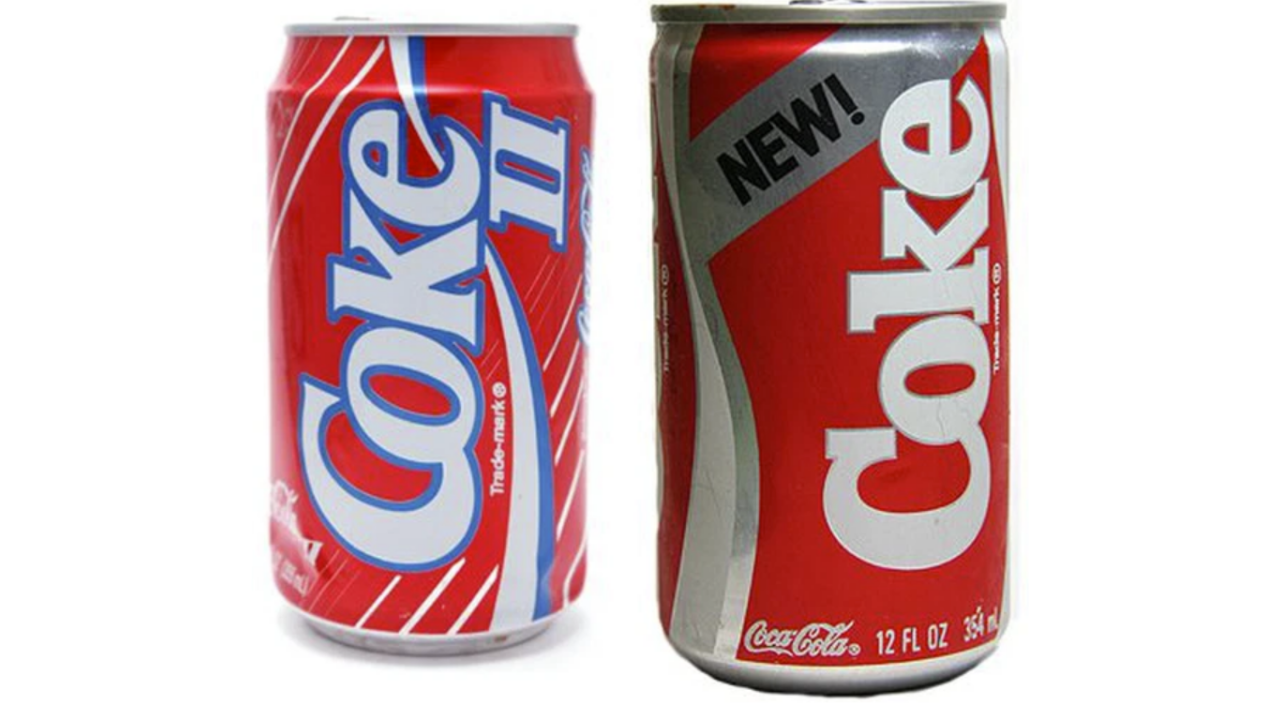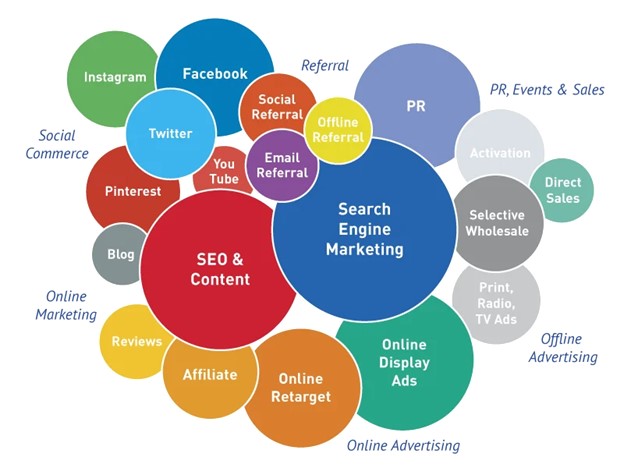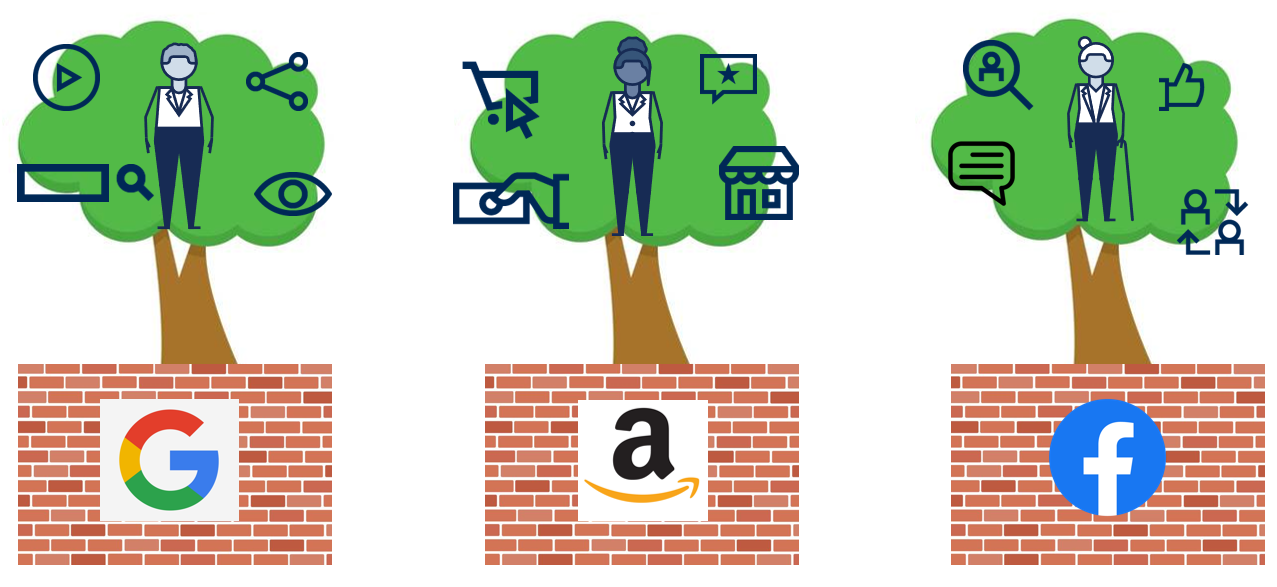DIY marketing may sound like a great way to grow your business, but it’s not quite as easy as it seems. To be successful, marketing requires a significant investment of time, talent, and effort. Before you can start utilizing marketing to grow your business, you need to first determine the business goals you want to achieve, create a marketing strategy, and identify the target markets you want to sell to.
However, a significant number of business owners either ignore their marketing efforts or choose to handle this aspect of their company’s operations in-house. They may assign this task to a different member of their team or choose to handle it themselves. And in many cases, this can have extremely negative repercussions.
When discussing DIY marketing, you need to evaluate the opportunity cost. In other words, are you spending your time on the activities that move your company forward, or are you keeping yourself from moving forward? Here are some of the most common reasons why you shouldn’t bother with DIY marketing.
1. DIY Marketing Will Set You Back in Time and Money

When it comes to spending money on marketing, one of the most common misconceptions is that saving money can be accomplished by avoiding spending money on third-party companies. In circumstances such as this, one of two things will typically take place:
You are the one who is going to be responsible for marketing, and as a result, you will have to devote a certain amount of your valuable time to work on the business’s marketing strategy. This doesn’t even account for the time needed for marketing execution, campaign development, and results measurement.
This is completely inefficient from a financial standpoint. Because you are wearing multiple hats when you work on marketing yourself, the time that you spend on it is not being invested as efficiently as it could be. It’s possible that one hour will be spent working as the marketing manager, and the next hour will be spent working as the business director.
You could also employ a task-oriented marketing intern or a freelancer to do the work for you.
Your marketing can become unfocused and haphazard if you take this approach, which will lead to a lack of results. And when that takes place, marketing budgets are frequently reduced, which can lead to a never-ending cycle of starting and stopping your marketing efforts.
The majority of companies will hire a marketing intern to handle some tasks on their own without providing any direction. (Probably because they don’t know what to tell them!) At the same time, they have an expectation of immediate results, and when those expectations are not met, the intern and the marketing budget are frequently eliminated. Another round of the never-ending cycle of firing and hiring marketing teams has begun.
DIY marketing is costing you more money in both instances because the way your time is being spent is inefficient, which indicates a lack of objectivity and focus on the task at hand. This results in a vicious cycle of squandered resources and unsatisfactory performance.
2. DIY Marketing Cannot Compete with Skilled Marketers

Although you may believe that you have a good understanding of how marketing works, the reality is that working with a qualified marketing team or agency that has a track record of delivering results simply cannot be compared to doing marketing on your own.
Talent is necessary for successful marketing. Today’s marketing strategies and execution methods are undergoing radical transformations at a breakneck pace. Can you keep up with what’s going on?
Any individual would be foolish to think that it would be easy to learn everything there is to know about marketing: You simply have no idea what you don’t know when it comes to things like search engine marketing, website design, social media marketing, and content marketing.
This can be detrimental to the success of your company because there will be a wide variety of different marketing tactics at your disposal that won’t be on your radar. As a result, you might even be pouring money into the completely wrong marketing channel.
And if your rivals are employing experts, they are going to run circles around you while you throw away precious time and money on your DIY marketing attempts.
3. Hard to Maintain Consistency with DIY Marketing

When you do your own marketing, you run the risk of being inconsistent, which is one of the biggest challenges most companies face. Maintaining consistency is extremely challenging, particularly if marketing is an additional responsibility you are responsible for.
You already have a lot on your plate, so the time you need to record a podcast or write a blog post will keep getting pushed aside.
And if you don’t have consistent marketing, you’re putting a barrier up between yourself and your customers. You have to earn people’s trust by being there for them at all times, answering their questions, educating them, and providing insights about the industry. If you don’t, you’re just making it easier for your competitors to look good.
4. Measuring Only Sales Instead of Results

Your customers will typically require some additional time for research and decision-making prior to making a purchase unless you sell a low-cost consumer product. Unfortunately, DIY marketers have a propensity to measure the success of their marketing based solely on the number of sales conversions they achieve.
Because of this, DIY marketers tend to change their tactics often. Yet, the key to success in most forms of marketing is consistency. It usually takes a customer between five and seven encounters with a brand before they start paying attention to you.
Professional marketers integrate metrics into their campaigns. They measure at predetermined intervals and then optimize based on the information they gather. Consumers are notoriously difficult to predict and can be fickle. Most of the time, the way we think they will react turns out to be completely different.
Final Thoughts
Since we are professional marketers, it goes without saying that we are biased. However, the majority of our most successful clients come to us after attempting DIY marketing strategies, sometimes for years. We have practically seen it all, from terrible websites to pricey PPC campaigns that were completely ineffective.








